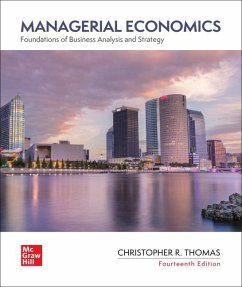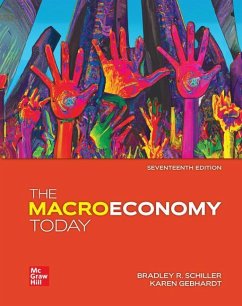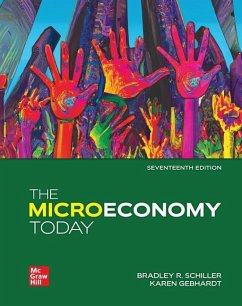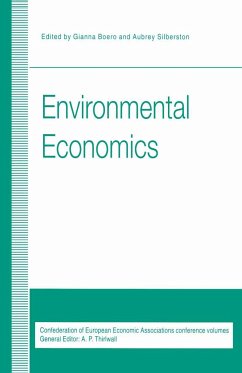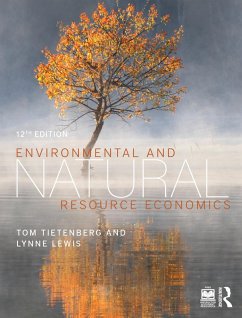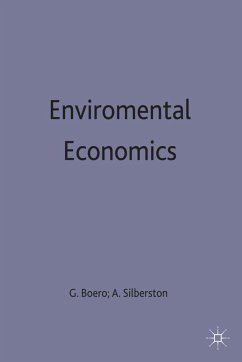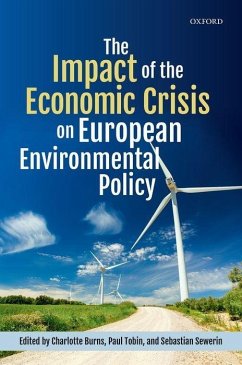Nicht lieferbar
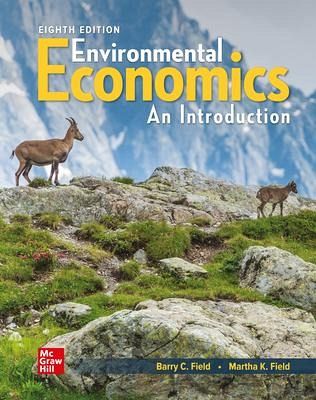
Loose Leaf for Environmental Economics
Versandkostenfrei!
Nicht lieferbar
Environmental Economics is an introduction to the basic principles of environmental economics as they have been developed in the past and as they continue to evolve. The examples discussed in this text represent only a sample of the full range of issues that actually exists. For this reason, the Eighth Edition sticks to the basic ideas and ways that environmental economists have found to make the basic concepts and models more specific and relevant to concrete environmental issues. >The basic structure and sequence of chapters in this edition are unchanged although we have reorganized and upda...
Environmental Economics is an introduction to the basic principles of environmental economics as they have been developed in the past and as they continue to evolve. The examples discussed in this text represent only a sample of the full range of issues that actually exists. For this reason, the Eighth Edition sticks to the basic ideas and ways that environmental economists have found to make the basic concepts and models more specific and relevant to concrete environmental issues. >The basic structure and sequence of chapters in this edition are unchanged although we have reorganized and updated the last section on global issues. The first section of the book is an introduction, beginning with a chapter on what environmental economics is about, followed by one on the basic relationships between the economy and the environment. The next section is devoted to studying the "tools" of analysis, the principles of demand and cost, and the elements of economic efficiency both in market and nonmarket activities. These chapters are not meant to be completely thorough treatments of these theoretical topics; however, given the objective of the book, the introductory chapters are essential. Even those who have had a course in microeconomic principles might find them valuable for purposes of review. Section 2 also contains a chapter in which these economic principles are applied to a simple model of environmental pollution control. >Section 3 is on environmental analysis. Here we look closely at some of the techniques that have been developed by environmental economists to answer some of the fundamental value questions that underlie environmental decision making. We focus especially on the principles of benefit-cost analysis. After this we move to Section 4, on the principles of environmental policy design. It begins with a short chapter dealing with the criteria we might use to evaluate policies, then moves on to chapters on the main approaches to environmental quality management. >Sections 5 and 6 contain policy chapters, where we examine current developments in environmental policy with the analytical tools developed earlier. Section 5 is devoted to environmental policy in the United States, covering federal policy on water, air, and toxic materials. It also contains a chapter on environmental issues at the state and local levels, including recycling. Finally, the last section looks at international environmental issues: global climate change, the economics of international environmental agreements, globalization, and economic development and the environment. >A collection of relevant web links and additional sources is available on the website. Also available is a tutorial for working with graphs. For instructors, the website offers an Instructor's Manual available for easy download. To access the website associated with this book, please visit the instructor resources. >




